 |
| |
| Sponsored by Westpak Inc. |
| |
|
|
| |
| SPONSOR MESSAGE |
| |
 |
Webinar: Shocking Truth About the Frequency Domain
WESTPAK's test professionals are offering a free technical webinar on Sept. 20 focused on |
|
| the frequency domain as it applies to vibration testing of products and protective package systems. The content includes a comparison of random vs. sinusoidal vibration, discusses vibration response, resonance examples, plus how to diagnose vibration testing results. |
| |
| Register now » |
| |
|
|
| |
| |
| |
 |
| Real Time Aging / Shelf-Life Testing |
| Real Time Aging, oftentimes referred to as Shelf-Life Testing, is exactly what the name implies. The testing is conducted in actual real time at ambient conditions to evaluate the effects that time has on packages and products. For example, the FDA allows Real Time Aging studies to be performed to confirm the results of accelerated aging on packaged medical device test samples. |
| |
| Learn more » |
|
|
| |
| |
| |
| |
|
|
| |
|
SPONSOR MESSAGE |
| |
|
|
| |
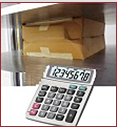 |
| Box Compression Test Strength Calculator |
| Use WESTPAK's Box Compression Test (BCT) Strength Calculator to estimate the BCT of a regular slotted container for a moment with the flutes oriented vertically. Inputs necessary are the edge crush test value, the corrugated board thickness, and the box's external dimensions. The estimate can be useful until a laboratory test can be performed in a controlled, repeatable test environment. |
| |
| Use calculator now » |
| |
|
|
| |
| |
| |
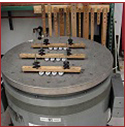 |
| Vibration Studies for Reliability Testing |
| Vibration testing replicates vibration that occurs in the real world to products and/or packages. Vibration stresses are the greatest when product resonances are excited. In a test laboratory, resonance can be achieved with a vibration machine programmed to provide either sinusoidal or random vibration input. High amplitudes during testing are often used to increase the stress level, reduce test time, or both. |
| |
| Learn more » |
|
|
| |
| |
| |
| |
|
|
| |
|
SPONSOR MESSAGE |
| |
|
|
| |
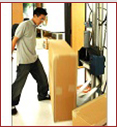 |
| White Paper: Laboratory Package Drop Testing |
| The paper examines the nature of package drop testing, the types and locations of drop impacts on packages in the distribution environment, why the typical specifications constitute over-testing, and the role drop testing plays in package performance and optimization studies. |
| |
| Download paper » |
|
|
| |
| |
| |
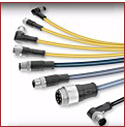 |
| The Usefulness of Mechanical Life Cycle Testing |
| Design engineers must consider several factors during the product design process. To evaluate a product's ability to comply with the performance criteria, test engineers develop tests to simulate exposure in the in-use environment. Mechanical life cycle tests are typically performed on wire and cable assemblies to evaluate robustness and other characteristics. The customized tests can simulate the range of motion, forces, and repetitive mechanical cycles anticipated in the in-use environment. |
| |
| Learn more » |
|
|
| |
| |
| |
| |
|
|
| |
|
SPONSOR MESSAGE |
| |
|
|
| |
 |
| Customer Satisfaction Survey Results – FY17 |
| Customer satisfaction has always been a top priority at WESTPAK. Customer input is received every day from returned surveys where clients assign ratings at the conclusion of their test. Every survey returned is read aloud to the owners every week and discussed as necessary. WESTPAK is proud to share FY17’s results with you now. Check it out! |
| |
| See survey results » |
|
|
| |
| |
| |
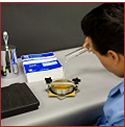 |
| Material Analysis Focus: Cobb Test |
| The Cobb test is a 1930's contribution that was so well-designed, the paper industry finally standardized it in 1960 with the creation of TAPPI test procedure T 441. Still in use today, the procedure determines "the quantity of water absorbed by nonbibulous paper, paperboard, and corrugated fiberboard in a specified time under standardized conditions." |
| |
| Learn more » |
|
|
| |
| |
| |








